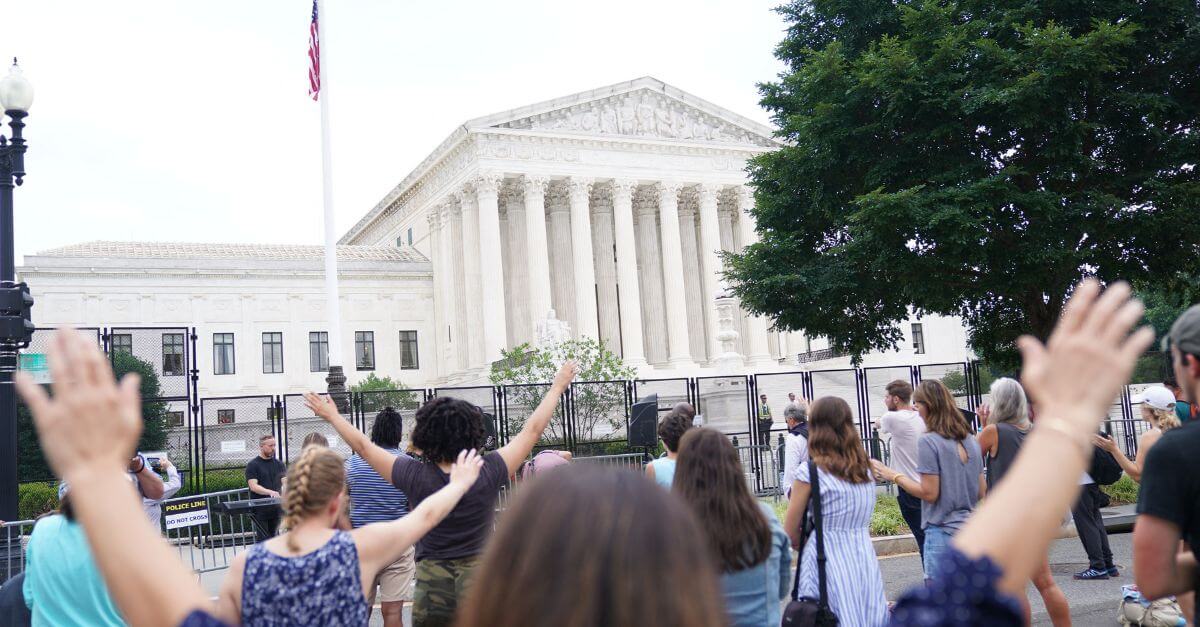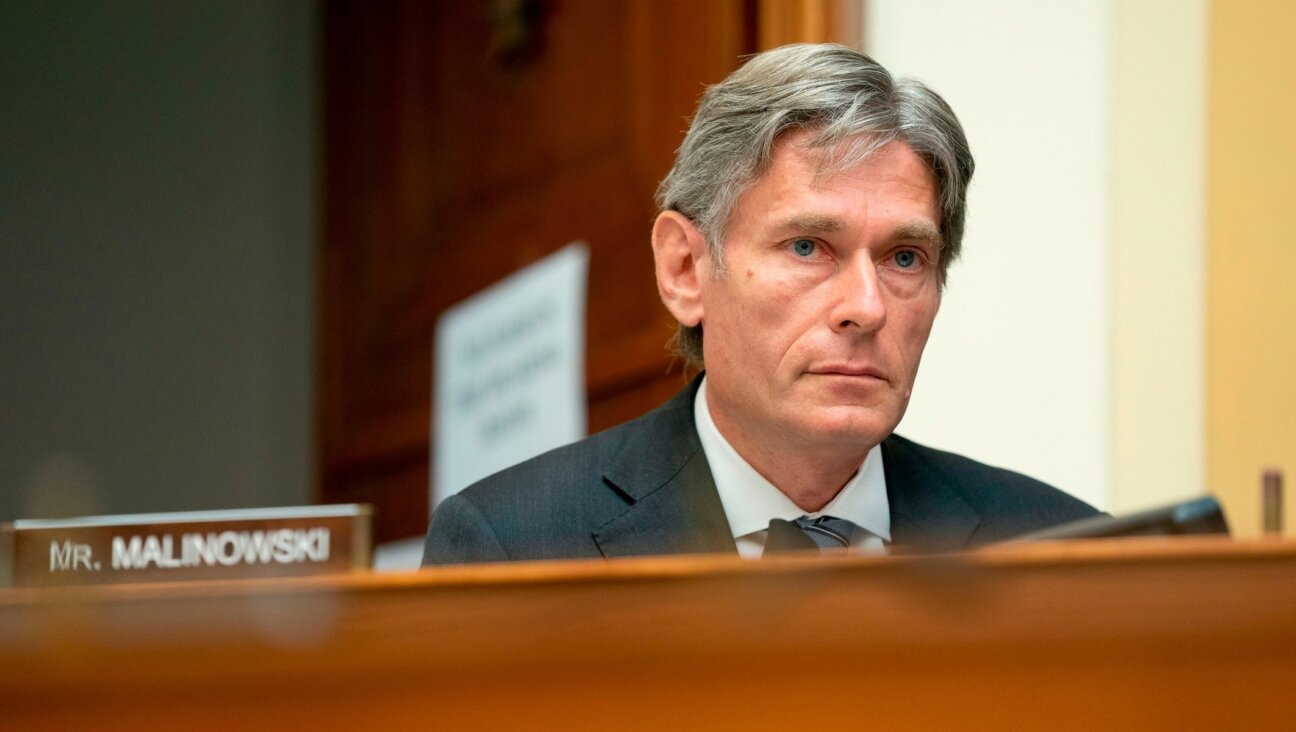Bush Ripped Over Influx Of Hezbollah Into America
The Bush administration has failed to act against a major Hezbollah infiltration of the United States, Senator Bob Graham told the Forward.
In an exclusive interview, Graham, a Florida Democrat and former chairman of the Senate Intelligence Committee, said that Hezbollah, an Iranian-backed Lebanese Shiite militant organization, has more trained operatives in America than Al Qaeda does. In the midst of promoting a new book blasting the Bush administration for allegedly covering up the extent of Saudi Arabia’s role in the September 11 attacks and for diverting to Iraq resources from the fight against radical Islamic terrorism, the senator said that at least several hundred Hezbollah operatives are now in the United States. The precise estimate, he said, is classified.
“Frankly, we don’t really have a strategy to prevent trained operatives from entering the U.S.,” said Graham, a third-term senator who will retire at the end of the year.
Graham said that while American forces have wiped out Al Qaeda camps in Afghanistan, Hezbollah training camps in Lebanon and Syria remain intact. Graham failed in his short-lived bid for the Democratic presidential nomination and was passed over by Senator John Kerry for the second spot on the ticket. Hezbollah’s presence in the United States dates back to the 1980s and initially consisted only of fund-raising activities, according to Graham. In subsequent years, however, trained operatives started arriving, the senator added.
Graham has called on several occasions for military strikes against Hezbollah camps and warned against the dangers of Hezbollah in the United States. But now, in the middle of a national tour to promote his book, “Intelligence Matters: The CIA, the FBI, Saudi Arabia, and the Failure of America’s War on Terror” (Random House), Graham is hoping to generate more attention on what he sees as the long-neglected, mounting threat posed by Hezbollah. So far, however, most media coverage has focused on his claims about Saudi Arabia.
In the new book, co-written with Democratic speechwriter Jeff Nussbaum, Graham contends that Saudi Arabia provided some of the 9/11 hijackers with a network of support upon which they depended to gain entry into the United States and for money after their arrival.
Asked whether this implied that Saudi Arabia had a hand in the 9/11 attacks, Graham said “not necessarily,” adding that Saudi officials and their American-based agents possibly did not know the ultimate objective of the hijackers.
Longtime Saudi Ambassador to the United States Bandar bin Sultan has publicly rejected Graham’s allegations, telling reporters that the Florida senator had made unsubstantiated and reckless charges repeatedly.
Asked about the possible involvement of Bandar — several reports mentioned that his wife had indirectly provided money to people linked to the plot — Graham declined to comment, hinting that his role was discussed in the classified part of the report issued by the House-Senate inquiry into the intelligence failures of 9/11. Graham was co-chair of the investigation, which issued its 800-page report last year. However, the Bush administration decided to black out 27 pages discussing Saudi Arabia’s role in the attacks, igniting a round of criticism of its alleged unwillingness to take on the Saudi royal family.
Several books have expounded on the links between the Bush family and prominent Saudi businessmen and officials dating back two decades. In addition, a controversy has raged for months over whether the administration allowed dozens of prominent Saudis to leave the country in the days following the 9/11 attacks without properly clearing them.
Bush has welcomed Saudi Arabia’s recent efforts to crack down on terrorist networks, most notably during his acceptance speech at the Republican National Convention in New York. Democrat opponent John Kerry has blasted Bush’s stance and has offered praise for Graham’s book, prompting Republican allegations that Graham’s broadside was politically motivated.
Graham denied any politicking behind the timing of the book, asserting that the issues in his tome were of major interest to Americans, regardless of electoral politics.
“I don’t think it is very reassuring to the families of the 3,000 who lost their life to hear that Saudi Arabia may have been a contributor to terrorism… but was now trying to do better,” he said.
In his book, Graham focuses on the contacts between two of the 19 hijackers, Khalid Almihdhar and Nawaf Alhazmi, and a Saudi man named Omar al-Bayoum, based in San Diego. Citing an FBI assessment, Graham claims that Bayoumi was a Saudi intelligence agent in charge of monitoring Saudi students.
Shortly after the two men flew into Los Angeles after attending what American officials believe was a key planning meeting in Malaysia, Bayoumi drove from San Diego to Los Angeles. He first went to the Saudi consulate to meet with an official named Fahad al-Thumairy, who was later deported for terrorism-related activities. Bayoumi then went to have lunch in a Middle Eastern restaurant where he allegedly ran into Almihdhar and Alhazmi by accident.
After that luncheon, Bayoumi took the two men under his wing, putting them in contact with people who helped them obtain phony Social Security numbers and driver’s licenses, as well as bank accounts on which they would receive several thousand dollars to pay for their flight training.
The presidential 9/11 Commission concluded that Bayoumi’s contact with the hijackers was just coincidental. Graham said he was perplexed by that conclusion, noting that he found out there were 134 such restaurants in Los Angeles.
“I just have a hard time believing that Bayoumi and the two 9/11 hijackers just happened to be in the same one on the same day just after he spent time with a suspicious Saudi official,” he said.
Graham notes that Bayoumi’s salary almost doubled after the two men’s arrival, despite the fact that he did not show up for work at the aviation company that employed him — a subcontractor of the government-controlled Saudi civil aviation authority. He also said that Bayoumi had numerous phone conversations with Saudi officials after his encounter with the two men.
Graham cites a CIA agent saying the evidence of Saudi support for the two men is “incontrovertible.”
“Saudi Arabia had set up a structure for the purpose of surveillance of Saudis in America, which they made available to Al Qaeda to support at least these two terrorists,” Graham said, adding that the FBI had only “lethargically” investigated whether such an infrastructure helped the remainder of the 9/11 group. The senator added that his conversations with the 9/11 staff gave him the impression that the commission relied heavily on an interview with Bayoumi to reach its conclusion.
Graham, whose congressional probe did not talk with Bayoumi, said he was not “too sanguine” about the 9/11 Commission’s interview since it took place in Saudi Arabia, probably in the presence of local officials.
Bayoumi left for Britain shortly before the 9/11 attacks. Within three weeks, the FBI asked Scotland Yard to detain him, Graham said. However, the British authorities had to let him loose after no FBI agent showed up to interrogate him within a week, the maximum period they could hold a suspect without charges.
Graham said the incident is one of a series of FBI missteps on this issue and probably one of the reasons for what he describes as the administration’s cover-up.
As has been reported previously, Graham claims that an FBI informant in San Diego, a retired professor, had hosted one of the two men but failed to report it to his bureau handlers. According to Graham, when the House-Senate panel investigating the attacks attempted to subpoena the FBI to interview the informant, the FBI general counsel refused. Graham said he eventually received a letter from the bureau informing him that the Bush administration would not allow an interview to take place with the informant.
“If there ever was a smoking gun of the White House involving in cover-up, that’s it,” Graham said.
















